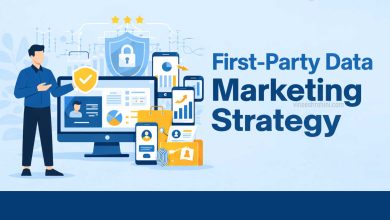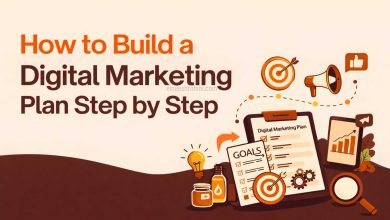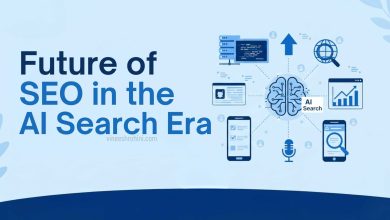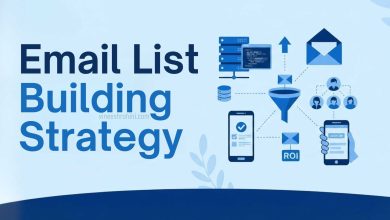Organic Marketing vs Paid Marketing
Organic Marketing vs Paid Marketing: A Comparative Analysis
Marketing is an essential aspect of any business. It helps to create awareness about a brand, product, or service, and drives customer engagement and sales. With the rise of the internet, there has been a proliferation of marketing channels, including search engine optimization (SEO), social media, email marketing, and pay-per-click (PPC) advertising. Two primary types of marketing strategies that businesses use are organic marketing and paid marketing. Organic marketing refers to the process of attracting customers to a business through unpaid, natural means such as SEO, content marketing, and social media. On the other hand, paid marketing involves paying for advertising on various platforms such as Google AdWords, Facebook Ads, and Twitter Ads. This essay aims to compare and contrast organic marketing and paid marketing, examining their strengths, weaknesses, and suitability for different businesses.
Organic Marketing
Organic marketing is all about leveraging natural channels to attract customers to your business. The primary advantage of organic marketing is that it is a cost-effective way to build brand awareness and drive traffic to your website. It relies on the creation of high-quality content that resonates with your target audience, and encourages them to engage with your brand. Some of the most popular organic marketing channels include SEO, social media, and content marketing.
Also Read… VPS Hosting vs Shared Hosting
SEO is the process of optimizing your website’s content and structure to rank higher on search engine results pages (SERPs). By using relevant keywords, optimizing your website’s metadata, and creating high-quality content, you can improve your website’s visibility on search engines. The advantage of SEO is that it can drive organic traffic to your website, resulting in more leads and sales. However, SEO can be a slow process, and it may take months to see significant results.
Social media is another powerful organic marketing channel. It involves creating and sharing content on social media platforms such as Facebook, Twitter, LinkedIn, and Instagram. By engaging with your target audience on social media, you can build brand awareness and establish a loyal following. The advantage of social media is that it allows you to interact with your customers in real-time, creating a more personalized experience. However, social media requires a significant time investment, and it may be challenging to measure its effectiveness.
Content marketing is the creation and distribution of valuable, relevant, and consistent content to attract and retain a clearly defined audience. By creating high-quality content, you can establish your business as a thought leader in your industry, and build trust with your audience. The advantage of content marketing is that it can be a highly effective way to drive traffic and generate leads. However, it requires a significant investment in time and resources to create high-quality content consistently.
Paid Marketing
Paid marketing, on the other hand, involves paying for advertising on various platforms such as Google AdWords, Facebook Ads, and Twitter Ads. Paid marketing is a more direct way of reaching your target audience, and it can provide more immediate results than organic marketing. However, it can be expensive, and it requires careful planning and execution to ensure a positive return on investment.
Also Read… Instagram Reels vs YouTube Shorts
Google AdWords is a popular paid marketing channel that allows businesses to advertise on Google’s search engine results pages (SERPs). Advertisers bid on keywords related to their business, and their ads are displayed when users search for those keywords. The advantage of Google AdWords is that it can drive highly targeted traffic to your website, resulting in more leads and sales. However, it can be expensive, and it requires careful keyword research and optimization to ensure a positive return on investment.
Facebook Ads is another popular paid marketing channel that allows businesses to advertise on Facebook’s social media platform. With Facebook Ads, businesses can target specific demographics, interests, and behaviors, making it a highly effective way to reach a specific audience. The advantage of Facebook Ads is that it can be more cost-effective than traditional advertising, and it allows businesses to track their ad performance in real-time. However, it requires careful targeting and ad creative to ensure that the ads resonate with the target audience.
Twitter Ads is a paid marketing channel that allows businesses to advertise on Twitter’s social media platform. With Twitter Ads, businesses can target specific demographics, interests, and behaviors, making it a highly effective way to reach a specific audience. The advantage of Twitter Ads is that it can be more cost-effective than traditional advertising, and it allows businesses to track their ad performance in real-time. However, it requires careful targeting and ad creative to ensure that the ads resonate with the target audience.
Comparing Organic Marketing and Paid Marketing
Organic marketing and paid marketing are two distinct marketing strategies that have their own strengths and weaknesses. Organic marketing is a cost-effective way to build brand awareness and drive traffic to your website, but it requires a significant investment in time and resources to create high-quality content consistently. Paid marketing, on the other hand, is a more direct way of reaching your target audience, and it can provide more immediate results than organic marketing. However, it can be expensive, and it requires careful planning and execution to ensure a positive return on investment.
Also Read… Audio Marketing vs Video Marketing
One of the key differences between organic marketing and paid marketing is the level of control that businesses have over the process. With organic marketing, businesses rely on natural channels to attract customers to their website. While they can influence the process through high-quality content and SEO, they cannot control how users find their website. With paid marketing, businesses have more control over the process, as they can target specific demographics, interests, and behaviors. However, this level of control comes at a cost, as businesses must pay for each click or impression.
Another key difference between organic marketing and paid marketing is the level of investment required. Organic marketing can be a cost-effective way to build brand awareness and drive traffic to your website, but it requires a significant investment in time and resources to create high-quality content consistently. Paid marketing, on the other hand, can provide more immediate results, but it can be expensive, and businesses must carefully plan and execute their campaigns to ensure a positive return on investment.
Suitability for Different Businesses
The suitability of organic marketing and paid marketing depends on the type of business and its marketing goals. For small businesses with limited budgets, organic marketing may be the best option, as it can be a cost-effective way to build brand awareness and drive traffic to their website. However, for larger businesses with more substantial budgets, paid marketing may be more suitable, as it can provide more immediate results and greater control over the process.
Also Read… Life With Digital Marketing vs Life Without Digital Marketing
Similarly, the suitability of organic marketing and paid marketing also depends on the industry and target audience. For industries with high competition and low search volume, paid marketing may be the best option, as it can help businesses stand out from the competition and reach their target audience more effectively. However, for industries with low competition and high search volume, organic marketing may be more effective, as businesses can rely on SEO and content marketing to attract customers to their website.
Conclusion
In conclusion, organic marketing and paid marketing are two distinct marketing strategies that have their own strengths and weaknesses. Organic marketing is a cost-effective way to build brand awareness and drive traffic to your website, while paid marketing is a more direct way of reaching your target audience and can provide more immediate results. The suitability of each strategy depends on the type of business, industry, and marketing goals. Ultimately, businesses must carefully evaluate their options and choose the marketing strategy that best aligns with their goals and resources.
| Aspect | Organic Marketing | Paid Marketing |
|---|---|---|
| Control over process | Limited control | High control |
| Investment required | Time and resources | High financial investment |
| Suitability for small businesses | Yes | Limited |
| Suitability for large businesses | Limited | Yes |
| Suitability by industry | High competition/low search volume | Low competition/high search volume |



